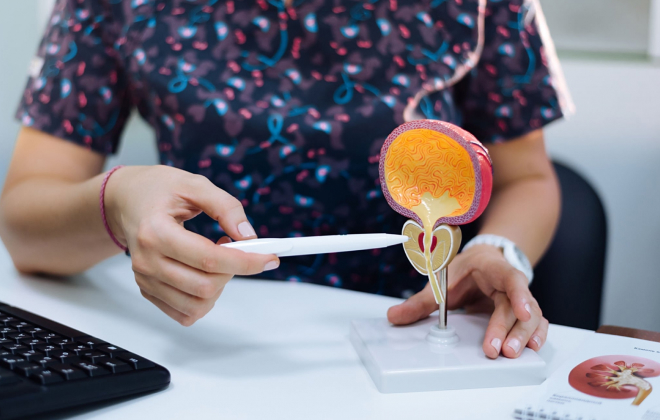


Our department offers clinical diagnosis and professional treatments for pelvic floor and urinary tract disorders, including urinary incontinence, faecal incontinence and pelvic organ prolapse. Many of these conditions can be successfully resolved by employing specific treatment options, minor procedures or making lifestyle adjustments.
Urogynaecology encompasses both urology and gynaecology, requiring even more specialised skills which you’ll find in our team of urogynecologists, trained nurses and support staff. You will also benefit from our commitment to the latest surgical and medical treatments.
Our team will work closely with you to develop personalised treatment plans that meets your unique needs.


Refers to the leakage of urine during physical activities like coughing, laughing, sneezing or exercising. It is caused by weakness of the pelvic floor muscle.


Refers to the leakage of urine that’s triggered by an urgent sensation to urinate immediately. This involuntary bladder contraction happens even when the volume in the bladder is low. Without an identifiable cause, this condition is commonly called “overactive bladder”.
Monday – Friday:
9:00am to 5:00pm
Saturday:
9:00am to 1:00pm
Sunday and Public Holiday: Closed
For your convenience, we accept payments via cash or credit cards.
For other credit card instalments, kindly consult your respective banks.
If you have a Guarantee Letter (GL) from a panel insurance company, kindly proceed to our Business Office Counter.
Spread the love, follow us on our social media channels